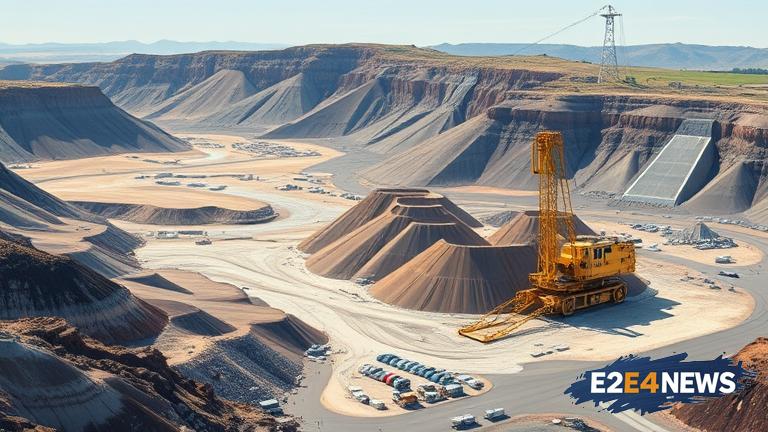The recent press release from Mining.com sheds light on the evolving landscape of lithium mining, an industry crucial for the production of batteries that power electric vehicles and renewable energy systems. Lithium, a key component in these batteries, has seen a surge in demand due to the global shift towards sustainable energy solutions. In response to this demand, mining companies are adopting new technologies and methods to improve the efficiency and sustainability of lithium extraction. One of the emerging trends in lithium mining is the use of brine extraction, which involves pumping underground brine to the surface and then extracting lithium through a process of evaporation and filtration. This method is considered more environmentally friendly compared to traditional hard rock mining. Moreover, advancements in solar evaporation technologies are allowing for more efficient lithium extraction from brine resources. The integration of renewable energy sources, such as solar and wind power, into mining operations is another significant development. By powering their operations with renewable energy, mining companies can significantly reduce their carbon footprint. Additionally, there is a growing focus on recycling lithium from spent batteries, which not only reduces waste but also provides a secondary source of this critical mineral. The press release also touches upon the importance of water management in lithium mining, given that the extraction process requires significant amounts of water. Companies are now investing in water recycling and conservation technologies to minimize their impact on local water resources. The geopolitical landscape of lithium mining is also undergoing changes, with new countries emerging as major players in the industry. Chile, Australia, and China have traditionally been among the top lithium-producing countries, but other nations are now entering the market. The press release mentions the potential for lithium mining in Africa, highlighting the continent’s untapped mineral resources. Despite the advancements, the lithium mining industry faces challenges such as fluctuating market prices, environmental concerns, and the need for more stringent regulations. To address these challenges, there is a call for greater transparency and cooperation among stakeholders, including governments, mining companies, and local communities. The future of lithium mining will likely be shaped by technological innovation, sustainable practices, and responsible resource management. As the world continues to transition towards cleaner energy sources, the demand for lithium is expected to remain high, driving further investment and development in the mining sector. In conclusion, the press release provides a comprehensive overview of the current state of lithium mining, emphasizing the need for sustainable practices, technological innovation, and responsible resource management. The industry’s ability to adapt to these challenges will be crucial in meeting the growing demand for lithium. With the global focus on reducing carbon emissions and transitioning to renewable energy, the role of lithium mining in this journey is more critical than ever. The press release serves as a reminder of the complex interplay between technological advancement, environmental sustainability, and economic viability in the lithium mining sector. As research and development continue to push the boundaries of what is possible in lithium extraction and recycling, the industry is poised for significant growth and transformation. The impact of these developments will be felt not only in the mining sector but also in the broader context of global energy policy and environmental conservation. Ultimately, the future of lithium mining will depend on the industry’s ability to innovate, to adopt sustainable practices, and to work towards a more environmentally conscious and socially responsible model of operation.
